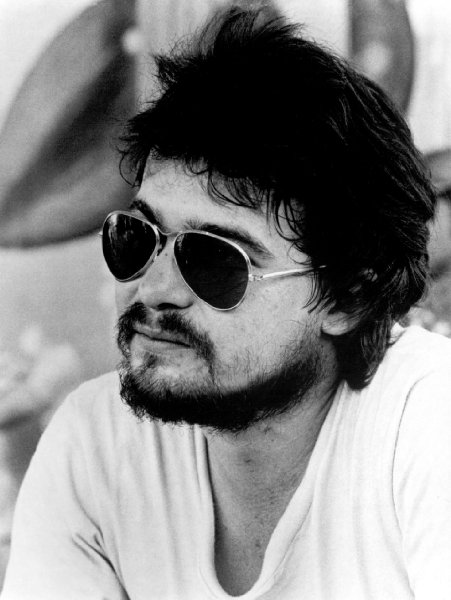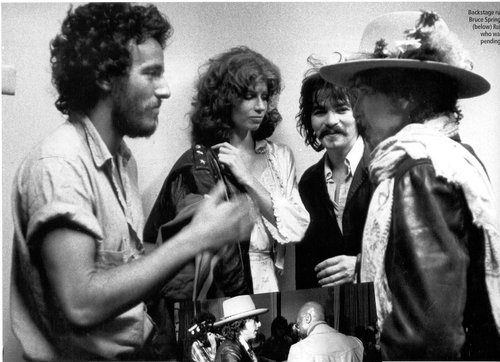“Jesus was a good guy, he didn’t need this shit.”
― John Prine“And you may see me tonight with an illegal smile. It don’t cost very much, but it lasts a long while. Won’t you please tell the man I didn’t kill anyone.
No, I’m just tryin’ to have me some fun.”
― John Prine
From Wikipedia:
| Born | October 10, 1946 (age 66) |
|---|---|
| Origin | Maywood, Illinois, United States |
| Genres | Country Folk Progressive bluegrass |
| Occupations | Singer-songwriter Guitarist |
| Instruments | Vocals Guitar |
| Years active | 1971–present |
| Labels | Atlantic, Asylum, Oh Boy, Rhino |
| Associated acts | Steve Goodman |
| Website | www.johnprine.net |
John Prine (born October 10, 1946, in Maywood, Illinois) is an American country/folk singer-songwriter. He has been active as a recording artist and live performer since the early 1970s.
Sabu Visits The Twin Towns Alone (1978) w/intro:
In 2003, he was given a Lifetime Achievement Award for songwriting by the UK’s BBC Radio 2 and that same year was inducted into the Nashville Songwriters Hall of Fame. The following year saw his song “Sam Stone” covered by Laura Cantrell for the Future Soundtrack for America compilation.
Prine has taken his place as one of the most influential songwriters of his generation. In 2009, Bob Dylan told the Huffington Post that Prine was one of his favourite writers, stating “Prine’s stuff is pure Proustian existentialism. Midwestern mindtrips to the nth degree. And he writes beautiful songs. I remember when Kris Kristofferson first brought him on the scene. All that stuff about “Sam Stone,” the soldier junkie daddy, and “Donald and Lydia,” where people make love from ten miles away. Nobody but Prine could write like that.”
In Johnny Cash‘s autobiography Cash, he admitted “I don’t listen to music much at the farm, unless I’m going into songwriting mode and looking for inspiration. Then I’ll put on something by the writers I’ve admired and used for years (Rodney Crowell, John Prine, Guy Clark, and the late Steve Goodman are my Big Four)…”
When asked by Word Magazine in 2008 if he heard Pink Floyd‘s influence in newer British bands like Radiohead, Roger Waters replied “I don’t really listen to Radiohead. I listened to the albums and they just didn’t move me in the way, say, John Prine does. His is just extra-ordinarily eloquent music—and he lives on that plane with Neil Young and Lennon.”
Prine received the Artist of the Year award at the Americana Music Awards on September 9, 2005. The award was accepted in his name by awards host and long-time friend Billy Bob Thornton.
Speed Of The Sound Of Loneliness (2010):
“Have you ever noticed
When you’re feeling really good
There’s always a pigeon
That’ll come shit on your hood
Or you’re feeling your freedom
And the world’s off your back
Some cowboy from Texas
Starts his own war in Iraq.”
-John Prine
Album of the day – John Prine (1971):

From allmusic.com – William Ruhlmann:
A revelation upon its release, this album is now a collection of standards: “Illegal Smile,” “Hello in There,” “Sam Stone,” “Donald and Lydia,” and, of course, “Angel from Montgomery.” Prine’s music, a mixture of folk, rock, and country, is deceptively simple, like his pointed lyrics, and his easy vocal style adds a humorous edge that makes otherwise funny jokes downright hilarious.
Other October 10:
- Thelonious Sphere Monk (October 10, 1917 – February 17, 1982) was an American jazz pianist and composer considered one of the giants of American music. Monk had a unique improvisational style and made numerous contributions to the standard jazz repertoire, including “Epistrophy“, “‘Round Midnight“, “Blue Monk“, “Straight, No Chaser” and “Well, You Needn’t“. Monk is the second-most recorded jazz composer after Duke Ellington, which is particularly remarkable as Ellington composed over 1,000 songs while Monk wrote about 70.
– - Solomon Burke (March 21, 1940 – October 10, 2010) was an American singer-songwriter, entrepreneur, mortician, and anarchbishop of the United House of Prayer For All People. Burke was known as “King Solomon,” the “King of Rock ‘n’ Soul,” and as the “Bishop of Soul,” and described as “the Muhammad Ali of soul,” and as “the most unfairly overlooked singer of soul’s golden age.” Burke was “the founding father of what was defined as soul music in America in the 1960s,” and “a major architect of 1960s soul, infusing post-World War II R&B with [his] gospel roots.” and “a key transitional figure bridging R&B and soul.”
-Egil



